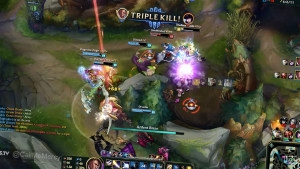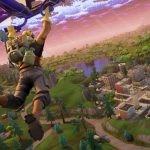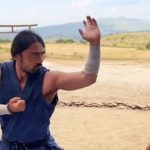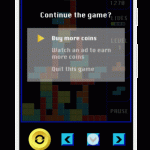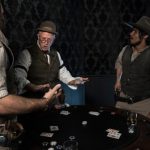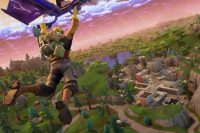How Dennis ‘Thresh’ Fong Went From Pro Gamer To Entrepreneur
Twenty years ago, before anyone imagined e-sports becoming a global billion-dollar industry, the Guinness Book of World Records anointed Dennis Fong as the world’s first professional gamer.
When he was a teenager, Fong—known to gamers as “Thresh”—reigned as world champion of Doom, Doom 2, Quake, and Quake 2, garnering six-figure endorsements and winnings, including a Ferrari. Last year, he was inducted into the ESL (formerly Electronic Sports League) Hall of Fame.
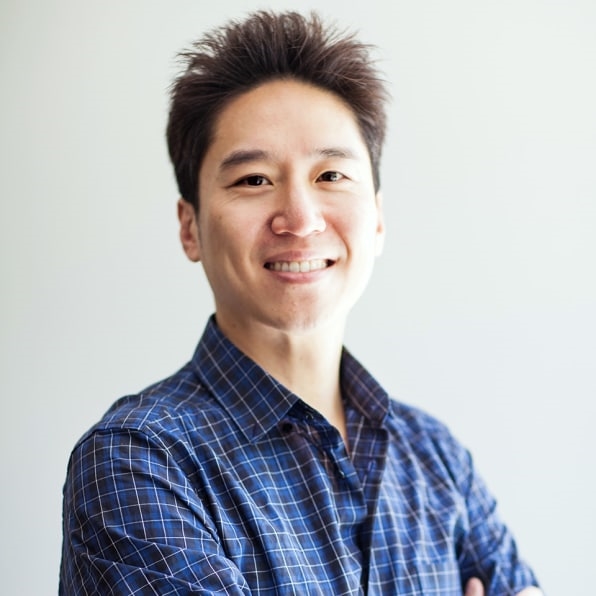
Today, Fong, 40, sits atop a multimillion-dollar business empire born from a love of gaming and an eye for targeting untapped niches for its improvement. He is CEO of Plays.tv, the leading video recording app for e-sports, and founder of Raptr, a gamer-focused social networking site and instant messenger. Together, those companies draw 90 million users. Fong also cofounded Lithium Technologies, a social media platform licenser now being acquired by Vista Partners for hundreds of millions of dollars, and Xfire, a gaming-centric instant messaging and social media system, that sold to MTV for more than $100 million.
What Fong didn’t realize back in the ’90s was that his gaming obsession was honing his entrepreneurial skills. The spirit of teamwork, the mental agility, the ability to read his competition and trust his intuition—it’s all informed his business decisions, from conceiving products to pitching VCs to knowing when to move on to the next project. This is clear during our conversations with Fong—via phone recently and in person last year at San Diego Comic-Con, where he participated in an e-sports panel. “My companies came from a passion for gaming,” Fong tells Fast Company. “I didn’t start companies because I thought I could make billions of dollars. I wanted to create something in gaming that was missing. All the companies and products I’ve started are about connecting people.”
And as a CEO, he can still compete. “I have an obsession with winning, which is both positive and negative,” Fong says. “When I was competing on a team, I would drag my teammates over the finish line to win. In real life, it’s not that easy. There are egos and other things to consider. Sometimes it’s better to let someone fail small. I learn most when I fail. Because it pisses me off so much that I don’t want it to happen again. That’s what drives me.”
On The Threshold
Fong began gaming at age 11, shortly after his family moved to Los Altos, California, from Hong Kong. At 16, he gravitated to the first-person shooter games Doom and Quake. This was the early ’90s, when the nascent public internet was attracting early adopters and the technologically curious. Online games were a gateway to that community—Fong often played against another avid gamer named Elon Musk—and a burgeoning world of computer networking, modems, and programming.
“Single-player games weren’t of interest to me,” Fong says. “What drew me was, for the first time, you could play against a live person, in real time, online. This is before MMOs [massively multiplayer online game]. You used dial-up modems to call each other.”
Fong’s growing reputation eventually caught the attention of a Wall Street Journal reporter looking into the new gaming craze. In true teen gamer fashion, Fong slept through their appointment.
“I’d completely forgotten,” Fong says with a laugh. “He showed up at the door and ended up waking me up. I asked if he could come back in a half hour so I could take a shower.” The reporter trailed Fong for the day and when the story landed on the front page in August, 1996, the 19-year-old became the face of online gaming.
Immediately, Fong started getting calls from the likes of Hasbro and Earthlink, offering lucrative sponsorships and consulting deals. Known for an uncanny ability to anticipate his opponents’ moves (dubbed “Thresh-ESP”). “I went from playing games at home to making a bunch of money within a year,” he says. Although he’d been earning some prize money for a few years, in 1997, he jumped to $150,000 in sponsorships and winnings, plus the trophy that many credit with putting e-sports on the map: the custom Ferrari 328 GTS that he won at his Red Annihilation Quake tournament that May.
“I viewed it as a thinking game, like micro-speed chess,” Fong says. “‘Thresh ESP’ came from my always seeming to know what my opponents were going to do. I have very strong intuition, which translates well into business. It’s about understanding other people’s context. If you want to work for someone, you try to understand their world. If you’re trying to raise money, you need to care about the context the investors care about. Marketing is seeing the world through the user’s eye.”
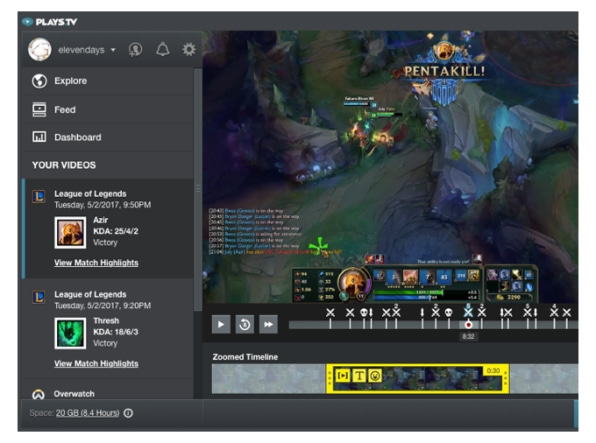
The E-Sporting Life
While gaming in 1996, Fong used his burgeoning winnings to found his first business, GX Media (i.e., Gamers Extreme) with his brother, Lyle. The company launched the Gamers.com community portal and FiringSquad video gaming site, which became that era’s most trafficked gaming destinations.
He kept the business going when he enrolled at the University of California, Berkeley, where he lasted only a semester before dropping out (to the chagrin of his academically oriented parents) to return to pro-gaming and focus on his startup. By 2000, GX Media had ballooned to an organization with 130 employees that put increasing demands on Fong’s time. That, plus worsening carpal tunnel syndrome—an occupational hazard—forced him to retire from pro-gaming at age 23.
By then, the brothers noticed that Gamers.com—designed as a scalable, flexible community platform for players—was attracting a slew of unrelated sub-communities and corporate requests to license the platform for their own use. Selling the gaming sites and shuttering GX Media, they reorganized the remainder as Lithium, a software-as-service business that manages online communities for Fortune 1000 companies such as Dell and Sony. Lyle assumed Lithium’s daily operations while Dennis launched XFire, a gaming-friendly instant messaging and social media platform that wouldn’t distract players or crash games. When MTV bought Xfire in 2006, Fong readied gaming social media platform Raptr for a 2007 launch. Last month, the brothers sold Lithium, which had grown to a few hundred employees with subsequent acquisitions, and are no longer shareholders.
Lyle is now pursuing his own ventures, while Dennis continues to oversee his startups. One Raptr product, Plays.tv, a video recording application for e-sports and gaming that launched in 2015, grew so quickly—drawing 10 million users—that earlier this year, Fong spun it off into its own company, which now has a staff of 36. The startup raised $15 million in a January 2017 financing round led by Shasta Ventures that included such investors as San Francisco 49ers owners and Brooklyn Nets basketball star Jeremy Lin.
Plays.tv’s automated artificial intelligence software records, bookmarks, and edits gameplays in real time for easy upload. “There’s no other product like this out there,” Fong says. “It figures out when you do something important in the game, like make a kill, and turns them into video highlights, instead of the player having to do it manually. We didn’t design it for that, but now it’s become a popular self-improvement tool.”
Fong believes that his forte in serial entrepreneurship is the hands-on aspect of launching new ventures, then, when the time is right, handing them off to leaders more adept at daily operations and growth. “There are people who are really good at managing people, making them feel really empowered and not micro-managing them,” Fong says. “I have to find people like that to pair myself with because they’re much better at it than I am.”
“I believe everybody has a super power—something they’re incredibly good at, that they don’t really have to try very hard to do,” he continues. “Mine was gaming and then creating companies. If you can find that in your life and apply that to a career, then it never feels like work and you’re just really frigging good at it.”
The first professional gamer (who played against Elon Musk as a teenager) explains how he leveraged his eSports skills into a multimillion-dollar empire.
Twenty years ago, before anyone imagined eSports becoming a global billion-dollar industry, the Guinness Book of World Records anointed Dennis Fong as the world’s first professional gamer.
Fast Company , Read Full Story
(113)

